
Staff
Academic Director
Academic Director of the German-Colombian Peace Institute – CAPAZ and Chair of Peace Studies at the Justus Liebig University Giessen (Germany). He studied Political Science at the Philipps-University Marburg and Universidad Complutense de Madrid and obtained his PhD in Political Science at the University of Kassel (Germany). Stefan Peters works in the fields of Neo-Extractivism and Rentism, Social Inequalities, Education, Memory Studies, Development Theory and North South Relations. He has been visiting professor and researcher at universities in countries such as Cuba, Argentina, Ecuador and Puerto Rico.
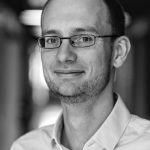


Paula Ortega Orjuela
ADMINISTRATIVE AND FINANCIAL DIRECTOR
Master in Regional Sciences and Territorial Planning from the University of Karlsruhe (Germany), Economist from the Universidad Nacional de Colombia and Specialist in Social Economy from the Universidad de los Andes. She has professional experience in evaluation, monitoring and project management in various financial and social sectors. Among others, she was part of the Mission Management Team of the Agency for Reintegration and Normalisation of Colombia, responsible for the monitoring and quality of processes, plans and mission programmes. Since 2020, she is part of the CAPAZ / University of Giessen team in the coordination of the “Nodo Alemania” project from Germany. Since 2022 she is part of the administrative and financial team of CAPAZ.
Indira Murillo
Project Director
Lawyer graduated from Universidad Cooperativa de Colombia (Neiva), she holds a Master´s Degree in International Legal Studies with a Specialization in International Human Rights and Gender and the Law from American University Washington College of Law, and an LL.M. from Ruprecht Karls – Universität Heidelberg. Ms. Murillo has focused her work on Human Rights Issues, Transitional Justice, Nationality and Statelessness, International Migration, Gender-based violence and the Promotion of Gender Equality.
Throughout her career, Ms. Murillo has served in various positions, such as Lawyer at the Constitutional Court of Colombia, Consultant for the Office of the United Nations High Commissioner for Refugees in Colombia, Human Rights Fellow at the New York City Bar Association, and Dean´s Fellow at the War Crimes Research Office at American University Washington College of Law. She has also taught International Public Law at two law schools in Bogotá, Colombia.
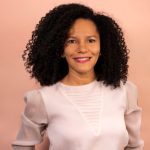


Thilo Marauhn
Justus Liebig University Giessen
Prof. Dr. Marauhn is the spokesman of the German consortium of CAPAZ. He is professor of Public Law and International Law at Justus Liebig University Giessen, Germany, and head of the newly established International Law Research Group of the Peace Research Institute Frankfurt. He chairs the German National Committee on International Humanitarian Law, is a member of the Advisory Board on United Nations Issues of the German Foreign Office and First Vice-President of the International Humanitarian Fact-Finding Commission. Thilo Marauhn has held visiting professorships at the Universities of Bergen, Madison (Wisconsin), Rovaniemi, Tromsø and California Western School of Law, San Diego; he holds a permanent visiting position at the University of Lucerne, Switzerland. Among the various externally funded research projects, the most recent one addresses “UN policing – legal basis, status and directives on the use of force” (German Foundation of Peace Research).




Camilo Alberto Borrero García
Universidad Nacional de Colombia
Stefan Peters
Academic Director
Academic Director of the German-Colombian Peace Institute – CAPAZ and Chair of Peace Studies at the Justus Liebig University Giessen (Germany). He studied Political Science at the Philipps-University Marburg and Universidad Complutense de Madrid and obtained his PhD in Political Science at the University of Kassel (Germany). Stefan Peters works in the fields of Neo-Extractivism and Rentism, Social Inequalities, Education, Memory Studies, Development Theory and North South Relations. He has been visiting professor and researcher at universities in countries such as Cuba, Argentina, Ecuador and Puerto Rico.






Indira Murillo
Project Director
Lawyer graduated from Universidad Cooperativa de Colombia (Neiva), she holds a Master´s Degree in International Legal Studies with a Specialization in International Human Rights and Gender and the Law from American University Washington College of Law, and an LL.M. from Ruprecht Karls – Universität Heidelberg. Ms. Murillo has focused her work on Human Rights Issues, Transitional Justice, Nationality and Statelessness, International Migration, Gender-based violence and the Promotion of Gender Equality.
Throughout her career, Ms. Murillo has served in various positions, such as Lawyer at the Constitutional Court of Colombia, Consultant for the Office of the United Nations High Commissioner for Refugees in Colombia, Human Rights Fellow at the New York City Bar Association, and Dean´s Fellow at the War Crimes Research Office at American University Washington College of Law. She has also taught International Public Law at two law schools in Bogotá, Colombia.
Juliette Vargas
Scientific Collaborator – Georg-August-Universität Göttingen
Juliette Vargas has a Law Degree of the Universidad Nacional de Colombia and a Law Master’s Degree (LLM in German) of the Humboldt-Universität (HU) in Berlin. Her academic and professional experience has been focused on international public law, as well as international criminal law, international human rights and international humanitarian law and on topics of environment law. She has worked in strategic litigation research with organizations such as the European Center for Constitutional and Human Rights – ECCHR and the José Alvear Restrepo Lawyers’ Collective – CCAJAR. In the last years she has been working in topics related to transitional justice and the challenge of its implementation in Colombia. Additionally, she pursued Music Studies in Colombia and Germany. Mrs. Vargas’ position is financed by the University of Göttingen. Currently, she is PhD-candidate at the Göttingen University. Her research focuses on the Victim Participation at the Special Jurisdiction for Peace.




Rosario Figari Layús
Post-doctoral Researcher – Justus Liebig-Universität Gießen
Rosario Figari Layús works as a post-doc researcher at the Chair of Peace Studies at the Justus Liebig University of Giessen. She holds a PhD in Political Science from the Phillips University of Marburg. Previously she earned a Master degree in Social Sciences from Humboldt University of Berlin and a degree in sociology from the University of Buenos Aires. Her areas of work and research are transitional justice, human rights, and political violence. She has worked as a researcher and lecturer at various institutions including the University of Buenos Aires, the University of Heidelberg, the Philipps University of Marburg, Institute for Interdisciplinary Research on Conflict and Violence (IKG) at the Bielefeld University and the University of Konstanz in Germany.
Tatiana Quintero
SCIENTIFIC COLLABORATOR – JEP-CEV PROJECT – HISTORICAL MEMORY AND INEQUALITIES
She is a lawyer and political scientist from the Universidad del Rosario. She obtained her M.A. degree in Social Anthropology at the University of Münster and has undertaken further academic studies in the areas of International Human Rights Law, International Humanitarian Law and epistemologies of the South. She is currently a doctoral candidate at the International Graduate Center for the Study of Culture (GCSC) at the Justus Liebig Universität Giessen. Her professional experience has been linked to social research and the design of participatory methodologies for popular education processes, community leadership and support for the strengthening of ethnic-territorial organisations. She is part of the feminist collective Here We Draw the Line, an initiative focused on generating strategies to promote collective memory exercises through art. Her academic interests and fields of research are guided by decolonial thought and focus on memory studies, social movements, ethnic identity constructions, transitional justice and collective resistance as a strategy for peacebuilding.




ANDRÉS HERNÁNDEZ
SCIENTIFIC COLLABORATOR
Andrés Hernández is a public administrator, with a specialization in Human Rights from the Higher School of Public Administration (ESAP) and a Master’s degree in Human Rights and International Humanitarian Law from the Superior School of War of Colombia (ESDEG). He was part of the documentation team of the Observatory of Memory and Conflict (OMC) at the National Center for Historical Memory, served as research coordinator at the Institute for Pedagogy, Peace, and Urban Conflict (IPAZUD), and was a consultant for the United Nations Development Programme (UNDP). Additionally, he has been a teacher and researcher on topics related to human rights and international humanitarian law, and the author of various academic publications in these areas.
ANDREA CAGUA
SCIENTIFIC COLLABORATOR – JEP-CEV PROJECT – POLITICAL EDUCATION
She is a historian, researcher and project coordinator for the popularisation of history. She completed her doctorate in history at the Catholic University of Eichstätt-Ingolstadt. She completed her MA in Interdisciplinary Latin American Studies at the Free University of Berlin and her BA in History at the Universidad de los Andes in Bogotá. Her doctoral research dealt from a historical perspective with the silences and memories of the violence that were constructed in the media in Colombia in the 1960s and 1970s. She is currently co-creator and researcher in the transmedia project for historical research called @memoriaycomics, a participatory action research process to understand how comics construct the history of violence in the country and its use for political education. She is co-founder and active member of MemoriAL: Red interdisciplinaria de estudios sobre memoria en América Latina, since 2013. In addition to memory studies and comics, her research interests include gender studies, the relationship between history and literature, and film.
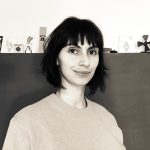



MARCELA PARDO
SCIENTIFIC COLLABORATOR – JEP-CEV PROJECT – POLITICAL EDUCATION
She studied Philosophy at the Universidad Javeriana. She has a degree in Political Science and Public Administration from the Escuela Superior de Administración Pública (ESAP) and a Masters in Cultural Studies from the Universidad Nacional de Colombia. She has worked on issues related to transitional justice, historical memory and territorial peacebuilding. For seven years, she was associated as a researcher and educator at the Centro de Investigación y Educación Popular (Cinep/PPP) where she was a data analyst and researcher of territorial peace experiences. From there, together with the Universidad Javeriana y and the Paulo Freire Institute (Berlin), she participated in training spaces for social leaders, young people and public servants in peace education. She was also a consultant in the areas of Transitional Justice and Historical Memory for the Peacebuilding Support Programme in Colombia (GIZ) and has participated in various publications.
Andrea Neira
Scientific Collaborator
Ph.D. student in Anthropology at the University of Cauca, Master in Feminist and Gender Studies and Social Worker. She has been a university professor of undergraduate and postgraduate courses at several public and private universities in Colombia for more than eleven years. Andrea has also worked with the academic and administrative management of research and social projection, as well as in the Monitoring Team for Reparative and Restorative Measures (ESMRR) of the Special Jurisdiction for Peace (JEP). Currently, Andrea is the coordinator of the CLACSO Working Group «Decolonial epistemologies, territories and culture», and a researcher of the Interdisciplinary Group for Gender Studies (GIEG), of the National University of Colombia. Furthermore, she is also part of the Working Group “Masculinities in Latin America. Frictions, leaks and fissures”. Her research topics are Masculinities, militarization, armed conflict and reincorporation processes; alternative and feminist economies; Youth subjectivities, hip hop, and peace; and Post-development, and alternatives to development. In 2019, Andrea won the Jorge Bernal Award for Social Research.




Claudia Maya
Coordinator Science and Education Diplomacy Project- CAPAZ-BMBF
Master of Arts in Media, Communication and Cultural Studies, University of Kassel, Germany and Stendhal University, Grenoble III, France. Claudia Maya has worked in the fields of communication and public relations, quality management systems, educational projects, culture and international cooperation, specifically in the cooperation between Colombia and German speaking countries. She has worked as a German teacher in Colombia and Switzerland, where she has been engaged in cultural projects and work integration, mostly for Spanish-speaking immigrants and refugees from conflict areas in Africa, Asia, and the Middle East.
DIANA MORALES
SCIENTIFIC COLLABORATOR – ENVIRONMENTAL PEACE
Sociologist and specialist in Environmental Law from the Universidad Externado de Colombia, and Master in Territorial Planning and Environmental Management from the Universidad de Barcelona. She has worked on issues related to the analysis and management of socio-environmental conflicts associated with the development of mining activities and decision-making for the conservation of strategic ecosystems such as the moorlands; formulation of public policy for the mining and energy sector, community water management and research ethics in organisations such as the Alexander von Humboldt Institute for Research on Biological Resources, the Office of Environmental and Social Affairs of the Ministry of Mines and Energy and the Centre for Research on Social Dynamics of the Universidad Externado de Colombia.




HEYDER ALFONSO-CAMELO
SCIENTIFIC COLLABORATOR
Sociologist specialized in conflict resolution with a master’s degree in human rights defense. He holds a Ph.D. in political studies and international relations from the National University of Colombia. He has worked as a consultant on access to justice and human rights issues for international cooperation programs such as USAID, UNDP, and KfW Bank aus Verantwortung. Additionally, he has been a consultant for the Unit for Victims’ Assistance, the Truth Commission, and the Peace and Reconciliation Foundation, among others. He has been a professor and researcher at various universities in the country, focusing on the dynamics of violence in Colombia, Central America, and Mexico, armed conflict, organized crime, state-building, and post-conflict periods.
Lorena Díez Arias
SCIENTIFIC COLLABORATOR
Museologist and curator. Her main research has focused on the culture of memory. As a museologist and curator, she is particularly interested in exploring definitions of territory and territoriality. She examines the intersections between everyday life and geopolitics, approaching the concept of borders from both symbolic and aesthetic perspectives. She has specialised in the recovery of life stories, using narrative interviews and story-making workshops to find other ways of bringing them into the realm of representation. She is interested in building bridges between different cultures and fostering connections between diverse communities.




Luisa Salazar Escalante
SCIENTIFIC COLLABORATOR
She is a lawyer from the Universidad del Rosario, holds a Masters in Social Policy Research from the London School of Economics and Political Science (LSE) and is studying for a PhD in Political Science at the Universidad de los Andes. She has served as Regional Coordinator of the Gender, Justice and Security Hub (GJS Hub) at the Universidad de los Andes, in partnership with LSE. Coordinator of the project of participation in Colombia of the Kroc Institute for International Peace Studies of the University of Notre Dame. She is also the lead researcher of the “Women’s Rights After War” project of the GJS Hub and coordinator of the Gender Observatory of the Misión de Observación Electoral (MOE) of Colombia. She also has teaching experience at the Universidad del Rosario and the Universidad de los Andes. Her research focuses on gender, peacebuilding, citizen participation, feminisation of the state, women's political participation and political violence.
MARÍA C. LLINÁS SOTO
SCIENTIFIC COLLABORATOR and INTERNATIONAL SUSTAINABILITY OFFICER
Coordinator of the International Office for Sustainability in Bogotá, an initiative born from the inter-institutional cooperation between Justus-Liebig-Universität Gießen, Universidad de los Andes, Universidad Nacional de Colombia, Universidad de Antioquia, and Universidad Andina Simón Bolívar (Quito campus), with the support of the Colombo-German Institute for Peace (CAPAZ). She holds a dual degree in International Business from Universidad Pontificia Bolivariana in Medellín (Colombia) and the University of Applied Sciences in Münster (Germany). Additionally, she earned a Master’s degree in International Studies from the University of Passau (Germany), specializing in sustainability, food sovereignty, and alternatives to development. Her professional experience focuses on the implementation and evaluation of sustainability strategies for companies and NGOs. She has served as the Impact Director for a social startup in Madrid (Spain) and worked as a consultant on international cooperation projects aimed at strengthening women-led community projects in La Guajira (Colombia).




MARÍA ALEJANDRA SALDARRIAGA
RESEARCH ASSISTANT
Philosopher from the Universidad de Antioquia. Social Manager of the programme “Jóvenes en Paz” of the Ministry of Equality and Equity of the National Government since February 2024 in the city of Medellín. She worked as a bilingual mediator at the Museo Casa de la Memoria in Medellín in 2022. Her areas of research and interest are conflict and peace, memory, crimes against humanity, transitional justice, international relations and political ideologies.
VALENTINA GONZÁLEZ
RESEARCH ASSISTANT
Lawyer from the University of Ibagué. She is interested in topics such as the protection of vulnerable populations, human rights, constitutional law, and international humanitarian law. She has experience as a monitor for the “Legal Assistance Program for Populations in Need of International Protection and Victims of the Armed Conflict,” led by the Legal Clinic of the University of Ibagué. Valentina has participated in research and projects related to the United Nations Development Program (UNDP) and the Network of Territories for Peace.
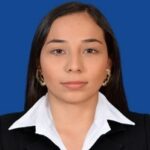



SOFÍA GÓMEZ PULIDO
RESEARCH ASSISTANT
Graduate in Political Science from the Universidad Nacional de Colombia. She was part of the work team of the Cultures of Peace and Reconciliation axis of the Consejería Presidencial para la Reconciliación Nacional (CPRN). She has worked as a researcher with the group Verdad Jurídica y Verdad Histórica de las Mujeres en Córdoba, on the issue of women searchers, around the crime of forced disappearance, and with the International Network of Systemic Criminal Policy on Human Rights. She is the author of academic publications in these areas.
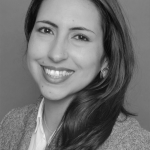

Paula Ortega
Administrative and Financial Coordinator
Master in Regional Sciences and Territorial Planning from the University of Karlsruhe (Germany), Economist from the Universidad Nacional de Colombia and Specialist in Social Economy from the Universidad de los Andes. She has professional experience in evaluation, monitoring and project management in various financial and social sectors. Among others, she was part of the Mission Management Team of the Agency for Reintegration and Normalisation of Colombia, responsible for the monitoring and quality of processes, plans and mission programmes. Since 2020, she is part of the CAPAZ / University of Giessen team in the coordination of the “Nodo Alemania” project from Germany. Since 2022 she is part of the administrative and financial team of CAPAZ.
Carolina Cerón
Administrative and Financial Coordinator
National University of Colombia graduate majored in German Philology. With more than 5 years of professional experience on Academic and scientific International cooperation projects between Colombia and Germany, she is acquainted with the main stakeholders, decision making actors and organizations involved on the field of international higher education and scientific management on both countries.




JOSÉ FONTECHA
ADMINISTRATIVE ASSISTANT
Specialist in Government, Management and Public Affairs from the Universidad Externado de Colombia and Public Accountant from the Universidad de La Salle. He has professional experience in the implementation of international cooperation projects financed by the European Union, the Swedish International Development Cooperation Agency and the Ministry of Foreign Affairs of the Kingdom of the Netherlands. He has also worked in national government entities and in the financial sector.
Laura Valencia Espinosa
Assistant NETCAPAZ Platform
Student of Languages and Culture and Political Science on her last semester at Universidad de los Andes, with knowledge in the areas of International Relations and Comparative Politics. She is interested on topics such as International Organizations, International Cooperation and Peace Building. She joined the German-Colombian Peace Institute (CAPAZ) in August 2021 as a Trainee in Knowledge Management.




Jair Burgos
Administrative Assistant – Project JEP-CEV
Accountant graduated from the Jorge Tadeo Lozano University. Work experience in financial and administrative affairs acquired in socio-economic projects funded by the private sector and non-governmental organizations. Jair has developed new training methods for people who have little or no knowledge in financial and tax areas, helping them to improve manual and financial skills. He has five years of experience in budget monitoring, administrative support, financial and tax support, and two years of experience assisting natural people in filing their income tax returns.
DANIEL FELIPE NIETO
ACCOUNTANT
Professional Accountant, graduated from the Universidad de la Salle Colombia in 2014. He has work experience in companies in the real sector, commercial sector, construction and with companies belonging to the special tax regime. He has carried out financial, process and accounting audits in these areas. He has extensive knowledge of the entire accounting cycle, from the reporting process to tax preparation and preparation, financial information and reporting. In addition, he has experience as a statutory auditor in Colombian companies and is up to date in international financial reporting standards.




LORENA CASTELLANOS CAICEDO
LEGAL PROFESSIONAL
Lawyer specialising in Labour Law and in Management and Management of Cultural Enterprises. Student of the Master’s Degree in Human Management and Organisational Development, at the Universidad Externado de Colombia. She has experience in human resources management, collective bargaining and cultural project management. She has led processes of selection, training, compensation, personnel management, labour relations, organisational climate, wellbeing, organisational development and health and safety at work in non-profit organisations. She served as human talent coordinator of the National Association of Symphonic Music – National Symphony Orchestra of Colombia for nine years.
Juan Sebastián Jaramillo Rincón
Fundraising Professional
Professional in Government and International Relations from the Universidad Externado de Colombia. Specialist in Project Management and Master of Arts in Global Development from the University of Leeds, England. During his professional career he has held positions in areas of international cooperation and fundraising, where he has managed resources and coordinated social impact projects with multiple actors and beneficiaries in public entities such as Icetex, Sena, private Colombian universities and non-governmental organisations in Colombia and the UK.
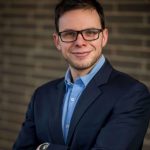

Lucía Alarcón
Assistant of Communication and Public Relations
Anthropologist and journalist from the Universidad de Los Andes. She has professional experience in the communication and journalism environment, working in organizations such as La Silla Vacía, Climate Reality Latin America and different research groups at the Universidad de Los Andes. Thanks to these experiences, she acquired knowledge on issues such as production of digital content, creative dissemination of academic documents, exploration of different informational formats in which academy and publics establish an open dialogue to influence the political agenda of Colombia.




ANA VILLALBA CASTRO
COMMUNICATIONS AND PUBLIC RELATIONS ADVISOR
She has a double master’s degree in International Studies and Political Science from the Universidad de los Andes, Colombia. Social communicator and journalist. She has accumulated experience working for more than fifteen years in national media in Colombia; in the field of organisational communication, democracy and human rights, mainly linked to international cooperation projects, and as an academic consultant. Her academic interests are focused on post-conflict, peacebuilding, migration, environment and gender studies. She is a finalist for the Círculo de Periodistas de Bogotá-CPB Award 2019.
Daniela Alzate
Community Manager
Master in Audiovisual Creation from the Pontificia Universidad Javeriana (Colombia), and Master in Visual Arts from the same university. Daniela has work experience in digital marketing, content creation, graphic design, and audiovisual production. For 3 years, she worked as a Social Media Manager for Teleaccion, a Contact Center Consulting and Training company in Colombia. She has also carried out parallel studies in Egyptology, Human Health and Climate Change, and Customer Experience through digital transformation.


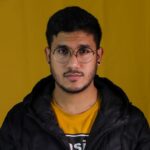

Esteban Campo
Community Manager
Industrial Engineering student at Universidad del Valle. He worked at AIESEC in Colombia in the areas of Organizational Development, Talent Management, and Communications. He has experience managing and creating content for social media, and he has worked with several social initiatives and organizations like Endeavor Colombia. Esteban is interested in topics such as leadership, group management, and visual arts.


